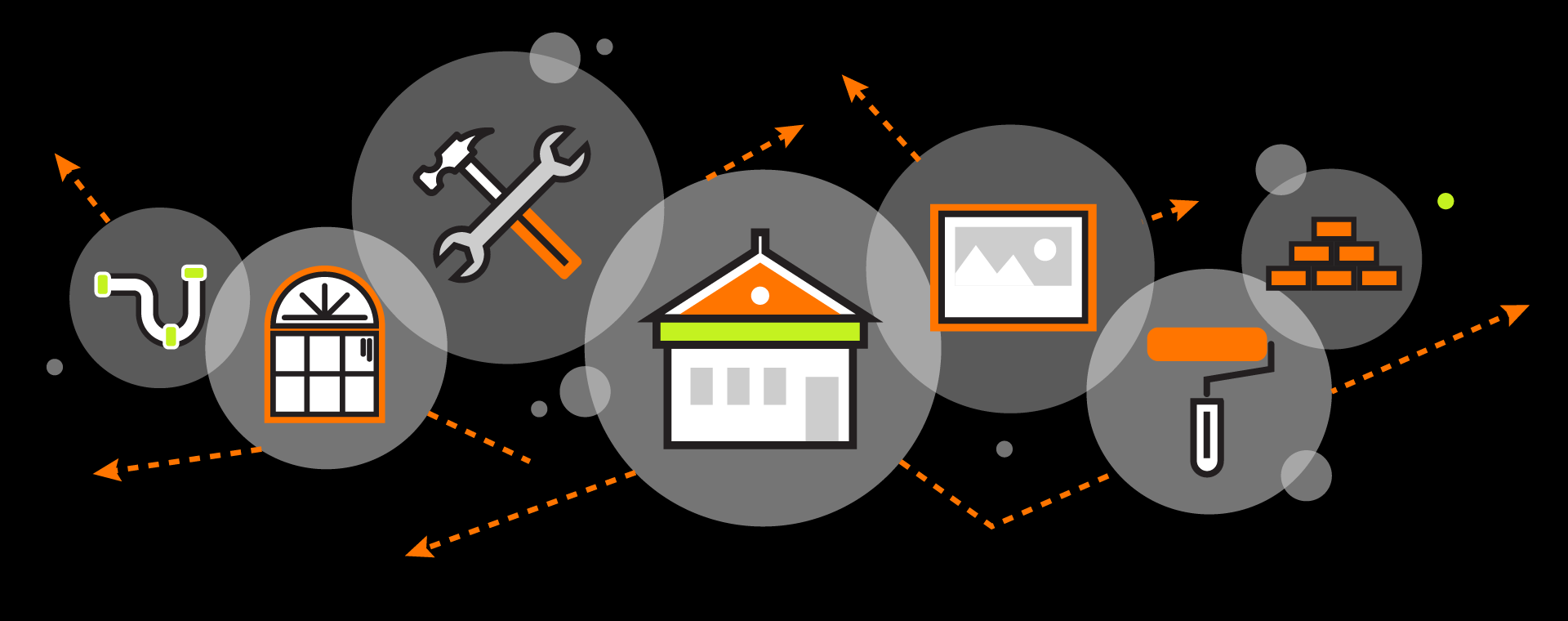Web Design For Small Businesses: Best Solutions 2026
A professional website is no longer just a “nice to have.” If you have a business, you need a website. Most consumers’ first move is to search for their needs online, and as a small business, it’s crucial to get in front of them wherever you can. However, simply creating any website is not enough; you need a great website that captures attention, boosts your credibility, and establishes your small business as a top choice for the products and services you offer.
Excellent website design goes beyond basic design and enhances your brand legitimacy, improves visibility in search results, and meets essential business needs like usability, SEO, and integration capabilities.
Whether you’re looking to refresh an existing website or build one from scratch, choosing the right approach can make all the difference in attracting new customers and driving conversions. In this guide, we’ll explore the best web design solutions for small businesses in 2026, helping you identify the right fit for your goals, budget, and timeline.
Key Takeaways
- Start with web design fundamentals that drive engagement and trust
- Focus on core pages that guide visitors toward conversion
- Your budget determines the right design approach
- Your business type shapes the features and functionality you’ll need
- Ensure your website is user-friendly, making it easy for both visitors to navigate and business owners to update and manage
Getting Started with Your Small Business Website Project
Launching a new website is an exciting milestone. Here’s how to set your project up for success:
- Define Your Goals: What do you want your website to achieve? Leads, sales, awareness?
- Plan Your Content: Gather your copy, photos, and branding assets early.
- Choose Your Platform: Select a design approach that fits your budget and skill level.
- Collaborate with a Professional: Agencies like Timmermann Group can guide you from concept to launch.
- Test Your New Site Before Launch: Test your new site on different devices, check links, forms, speed, and mobile performance to ensure everything is ready before going live.
- Go Live and Promote: Announce your launch across social channels and email to maximize visibility.
Core Web Design Principles & Elements Every Small Business Needs
A great small business website blends functionality, aesthetics, and performance to create a seamless experience that builds trust and drives action. Whether you’re building from scratch or redesigning an existing site, these are the core principles and elements your web design should include. Applying these principles is crucial for delivering a superior user experience and enhancing engagement.
Visual and Branding Foundations
Your website should instantly communicate who you are.
- Professional Header: Feature your logo, business name, and intuitive navigation that guides users to key pages like “Services” and “Contact.”
- Consistent Branding: Use your brand’s color palette, fonts, and tone throughout the site to build recognition and credibility.
- High-Quality Visuals: Authentic images of your products, services, and team help humanize your brand and connect with local audiences.
- Strategic Use of White Space: Give content breathing room to enhance readability and direct attention to calls to action.
Including examples of your branding and visuals, such as sample logos, color schemes, or branded imagery, can help visitors quickly recognize and connect with your business.
Functionality and User Experience
Visitors should be able to find information quickly and easily on any device.
- Mobile Responsiveness: With most traffic coming from mobile devices, your site must look and function flawlessly on every screen.
- Clear Contact Information: Display your phone, email, and address prominently in both the header and footer. For local SEO, include a Google Maps integration.
- Intuitive Navigation: Keep menus simple and consistent, and consider adding a search function for convenience.
- Fast Loading Speed: Users expect your site to load within three seconds. Compress images and choose a reliable hosting service to enhance speed and retention. Choosing the right host is crucial to ensure your website is fully functional and reliable from the moment it launches.
Technical and SEO Essentials
A professional website should look good and perform well in search.
- SSL Certificate: Secure your site to protect customer data and improve Google rankings.
- SEO Best Practices: Optimize your headings, meta tags, and image alt text with keywords to increase visibility, and ensure your site is structured so that search engines can easily understand and rank your content.
- Accessibility: Ensure color contrast, alt text, and keyboard navigation make your site usable for all visitors.
Together, these elements form the foundation of a high-performing small business website that earns trust, captures attention, and drives real results.
Core Pages Your Small Business Website Must Have
Your website doesn’t need dozens of pages to make an impact. Instead, focus on the key sections that tell your story, demonstrate your value, and guide users to act.
- Homepage: Your homepage should immediately answer one question for visitors: What can this business do for me? Lead with a strong headline that defines your value proposition, supported by engaging visuals and a clear call to action, such as “Get a Quote,” “Shop Now,” or “Book a Consultation.”
- About Page: People want to do business with brands they trust. Use your About page to share your story, mission, and values. Highlight your expertise, your team, and what makes your business unique. Adding photos of real people, such as owners, employees, or your workspace, helps personalize your brand and establish credibility.
- Services or Products Pages: This is where visitors decide whether your business fits their needs. Clearly outline what you offer, using descriptive language and pricing information where possible. Displaying transparent pricing plans helps customers compare options and make informed decisions. Breaking out individual services or products into individual website pages will help you reach customers looking for something particular and allow you the space to add relevant information to help them make an informed purchase. If you offer multiple tiers or packages, take it a step further and create an easy-to-compare guide or format them in a way that allows for comparison, guiding decision-making.
- Contact Page: Your Contact page should eliminate friction. Include multiple ways for visitors to reach you via a simple contact form, phone number, business hours, and a Google Maps integration for local directions. The easier it is for customers to connect, the more likely they are to make a purchase.
- Privacy Policy & Terms: Protect your business legally and build trust. Beyond professionalism, these pages are required for most businesses, primarily if you collect customer data. They demonstrate transparency and protect your company from potential liability.
- Testimonials and Reviews: Utilize social proof to enhance credibility and boost conversions. Before making a purchase or booking a service, most users look for proof that others had a positive experience. Featuring testimonials or Google reviews helps build confidence and turn visitors into customers. Video testimonials or case studies can add a powerful layer of authenticity.
Small Business Web Design Options in 2026
When creating a small business website, there’s no one-size-fits-all solution. The best approach depends on your goals, budget, technical skill level, and the amount of time you can invest. In 2026, small businesses have more website design options than ever, from DIY website builders to full-service digital agencies like Timmermann Group. Finding the best website builder is crucial for small businesses as these platforms offer user-friendly features, secure hosting, integrated marketing tools, and multi-channel sales capabilities.
Here’s how the main choices compare:
| Approach | Budget Range | Timeline | Best For |
|---|---|---|---|
| DIY Website Builders | $0 – $1,000 | 1–4 Weeks | Startups, solopreneurs |
| Template-Based Services | $1,250 – $5,000 | 2–6 Weeks | Small teams, local businesses |
| Custom Web Design & Development | $5,000 – $50,000+ | 6–16 Weeks | Growing brands, complex needs |
Regardless of which path you choose, your website is a valuable investment in your brand’s visibility and success. For small businesses aiming to compete online in 2026 and beyond, the ideal web design solution should strike a balance between cost, quality, and performance, enabling your site to look great and convert visitors effectively.
DIY Website Builders for Budget-Conscious Businesses
For small business owners just getting started, DIY website builders offer an affordable and accessible way to launch a professional-looking site without technical expertise. These platforms provide intuitive, drag-and-drop interfaces and pre-designed templates, making setup straightforward. Many website builders also offer built-in SEO tools, simplifying both the setup and optimization process for users.
- Wix: Starting at $17/month, Wix is one of the most popular small business website builders thanks to its drag-and-drop editor and over 900 templates. It’s ideal for entrepreneurs who want creative freedom without coding knowledge.
- Squarespace: Starting at $16/month, Squarespace offers sleek, modern designs perfect for service-based businesses such as salons, photographers, and consultants.
- Shopify: Priced from $29/month, Shopify is tailored for ecommerce businesses that need built-in inventory, payment, and shipping tools, and is designed to help small businesses sell products online efficiently.
- WordPress: Starting at just $4 per month, WordPress.com is best suited for content-heavy businesses, such as bloggers, publishers, or professional service firms, that prioritize SEO and long-form content. However, WordPress may have a steeper learning curve compared to other content management systems.
These platforms allow non-technical users to create professional-looking sites, though customization and scalability are often limited.
Custom Web Design and Development
For growing businesses ready to invest in long-term digital success, custom web design and development deliver the most value and flexibility. This approach offers tailored functionality, advanced integrations, and a unique look that reflects your brand’s identity and goals.
- Full-service web design agencies, such as Timmermann Group, offer a comprehensive suite of end-to-end website projects, typically ranging from $5,000 to $50,000 or more, depending on the project’s complexity. These agencies provide everything from design to digital marketing in one seamless package.
- Custom WordPress development enables the creation of unique designs, interactive features, and backend systems that support ecommerce, booking, or client portals. Hiring a developer or a team of developers is often necessary for advanced or highly customized features.
- Enterprise-level solutions are ideal for scaling small businesses that need performance optimization, CRM integrations, or multi-location management.
- Ongoing maintenance and support ensure your site stays secure, fast, and optimized long after launch. Clients may need to manage updates themselves or rely on their agency to handle updates, backups, and security.
Custom sites can integrate with CRM systems, ecommerce platforms, and marketing tools to streamline operations and maximize conversions.
Key Features to Prioritize Based on Your Business Type
The features your small business website needs will depend heavily on your industry, target audience, and business goals. Understanding which elements are must-haves versus nice-to-haves can help you plan your budget and ensure your website delivers the results you need. Additionally, consider integrating with existing business tools, such as CRM systems, appointment software, or ecommerce platforms, to keep your workflows seamless.
Small businesses can select from a wide range of features and integrations to tailor their website to their unique needs.
Here’s a breakdown of recommended features for the most common small business categories:
Service-Based Businesses
Service-based businesses, such as contractors, salons, or local service providers, require websites that foster trust and simplify the scheduling process for customers. For example, Timmermann Group’s home services marketing expertise highlights the importance of functionality that directly supports bookings and showcases your work.
Must-Have features:
- Online booking and appointment scheduling systems enable customers to select a date and time, thereby reducing friction and streamlining customer interactions.
- Service portfolio with before/after photos to visually demonstrate quality and expertise.
- Customer testimonials and case studies to build credibility and trust.
- Contact forms for service inquiries to capture leads quickly.
- Google Maps integration so customers can easily locate your business and verify service areas.
Nice-to-Have Features:
- Service-specific blogs for SEO and authority
- Loyalty program sign-ups or newsletter integration
- Chatbots for immediate support
Integration Considerations: Your ecommerce site should integrate with inventory management, accounting software, and email marketing platforms for operational efficiency.
Professional Services and B2B Companies
Professional services, such as law firms, consulting agencies, or financial advisors, require websites that convey credibility, authority, and thought leadership. For example, a client portal that allows secure document sharing is a valuable feature for these businesses. Our law firm website design services demonstrate how tailored features can drive leads and establish expertise.
Must-Have Features:
- Detailed service pages with pricing information to set clear expectations.
- Team member profiles and credentials to showcase expertise and trustworthiness.
- Case studies and white papers to support lead generation and demonstrate success.
- Contact forms with lead capture capabilities to convert site visitors into clients.
- Professional blog for thought leadership to strengthen authority and improve SEO.
Nice-to-Have Features:
- Client portals for document sharing or project tracking
- Appointment scheduling for consultations
- Newsletter subscriptions or gated content for lead nurturing
Integration Considerations: Ensure your website integrates with CRM systems, email marketing platforms, and analytics tools to track leads and optimize performance.
How to Choose the Right Web Design Approach for Your Business
Selecting your web design path starts with understanding your priorities:
- Budget: What can you reasonably invest in for long-term impact?
- Timeline: Do you need to launch in a few weeks, or can you plan for several months? Small business owners should take the time to evaluate their options, often over several weeks, to make the best choice.
- Technical Skills: Are you comfortable managing updates yourself? Or do you prefer working with a professional team that manages these tasks for you?
- Support: Will you need ongoing maintenance or SEO assistance?
- Future Growth: Are you planning for the future, ensuring your website can grow and adapt as your business evolves?
Before choosing a particular designer or agency, there are some questions you should be asking to ensure they’re the right website builder for your small business needs:
- What’s included in your proposal? (Design, development, hosting, SEO?)
- Do you offer post-launch support?
- How do you handle content creation or migration?
- What’s your experience in my industry?
- How will you assist me in managing my website after its launch, and does your platform automatically manage updates?
When discussing hosting, be sure to consider reliable hosting providers that offer strong support, security, and scalability tailored to your business needs.
If they’re unable to offer clear answers to your questions, that could be a potential red flag. It’s best to look for a different website builder who can help you create a new website. If none of the main solutions seem to fit, remember there are other options available for small businesses.
Frequently Asked Questions
How much does a small business website design cost?
Costs range widely, from free DIY builders to $50,000 or more for custom development. Most small businesses spend between $3,000 and $10,000 for a professionally designed, conversion-optimized site.
How do you design a website for a small business?
Start by defining your goals, audience, and budget. Choose a platform (DIY or custom), design around user experience, and ensure your site is mobile-friendly, SEO-optimized, and conversion-focused.
What is the 3-second rule in web design?
Users decide within three seconds whether to stay on your site. That’s why clear messaging, fast load times, and an engaging design are essential.
What are the 7 C’s of a website?
The 7 C’s of web design outline the key elements that make a website effective, engaging, and user-focused:
- Clarity: Your messaging, navigation, and visuals should be direct and straightforward. Visitors should immediately understand who you are, what you offer, and what their next steps should be.
- Consistency: Maintain a uniform look and feel across your site, using colors, fonts, tone, and imagery, to reinforce your brand identity and enhance the user experience.
- Credibility: Use professional design, secure connections (HTTPS), customer testimonials, and clear contact information to build trust with visitors.
- Content: Provide valuable, relevant, and well-organized content that addresses your audience’s needs and supports your SEO objectives.
- Convenience: Make your website easy to navigate and intuitive to use, ensuring visitors can quickly find what they’re looking for on any device.
- Communication: Engage your audience with clear calls to action, accessible contact forms, and straightforward messaging that encourages interaction.
- Conversion: Guide visitors toward meaningful actions, like requesting a quote, scheduling a consultation, or completing a purchase, through strong CTAs and strategic design.
Partner with Timmermann Group & Turn Your Website into Your Strongest Marketing Tool
Your website is the foundation of your digital marketing strategy, and it deserves to be built for growth. At Timmermann Group, we design and develop websites that help small businesses stand out, earn trust, and convert visitors into customers. From design strategy to launch and beyond, our team will ensure your website is a true driver of business success.
Not sure which web design solution makes the most sense for your business in 2026?
Book a 30-minute consultation with Timmermann Group to evaluate whether your current design is helping or holding your business back.






